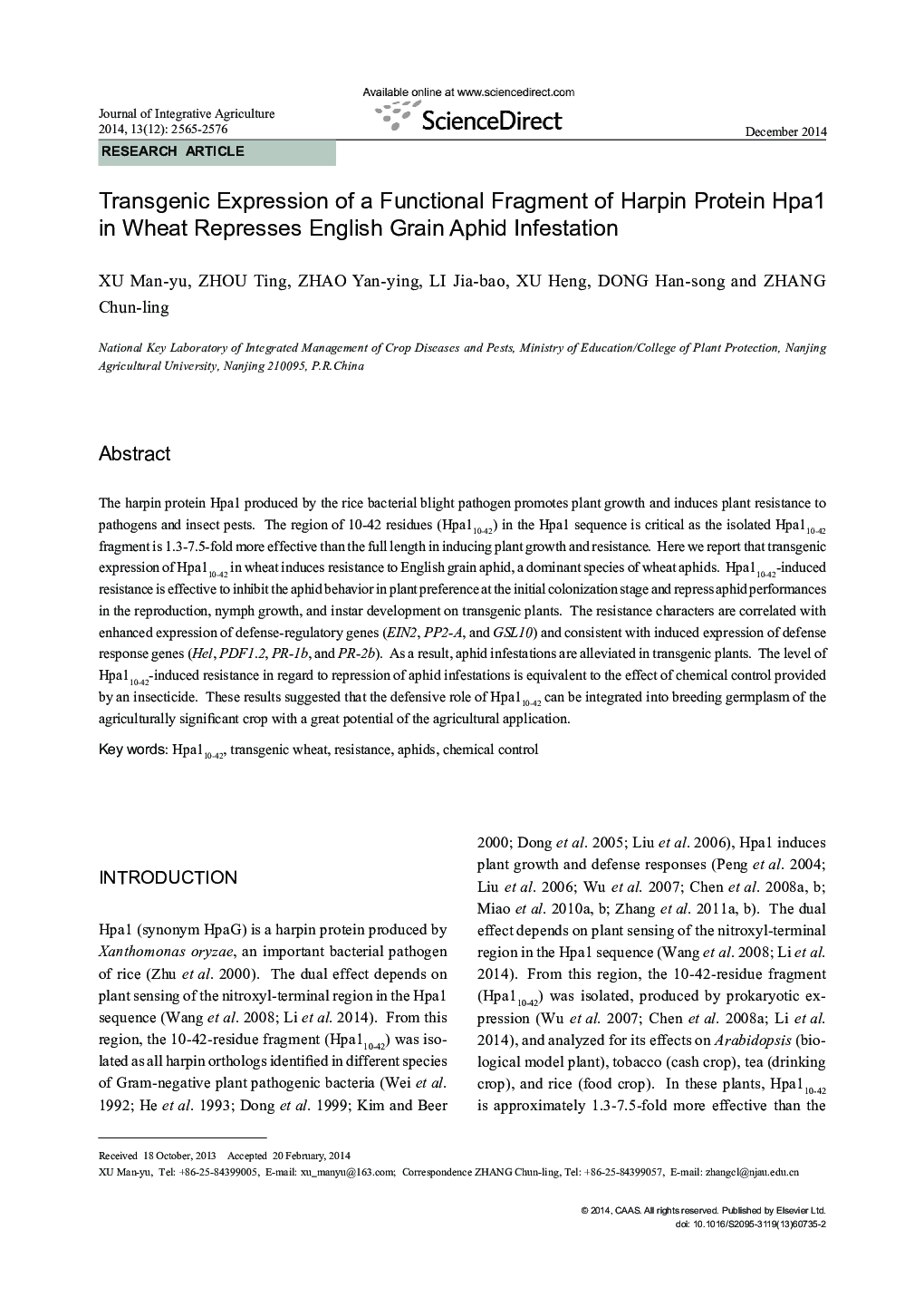| Article ID | Journal | Published Year | Pages | File Type |
|---|---|---|---|---|
| 4494252 | Journal of Integrative Agriculture | 2014 | 12 Pages |
The harpin protein Hpa1 produced by the rice bacterial blight pathogen promotes plant growth and induces plant resistance to pathogens and insect pests. The region of 10–42 residues (Hpa110–42) in the Hpa1 sequence is critical as the isolated Hpa110–42 fragment is 1.3-7.5-fold more effective than the full length in inducing plant growth and resistance. Here we report that transgenic expression of Hpa110–42 in wheat induces resistance to English grain aphid, a dominant species of wheat aphids. Hpa110–42-induced resistance is effective to inhibit the aphid behavior in plant preference at the initial colonization stage and repress aphid performances in the reproduction, nymph growth, and instar development on transgenic plants. The resistance characters are correlated with enhanced expression of defense-regulatory genes (EIN2, PP2-A, and GSL10) and consistent with induced expression of defense response genes (Hel, PDF1.2, PR-1b, and PR-2b). As a result, aphid infestations are alleviated in transgenic plants. The level of Hpa110–42-induced resistance in regard to repression of aphid infestations is equivalent to the effect of chemical control provided by an insecticide. These results suggested that the defensive role of Hpa110–42 can be integrated into breeding germplasm of the agriculturally significant crop with a great potential of the agricultural application.
